- You are here:
- Homepage
- Get involved
- Intensive Care Week 2022
It marked our 52nd birthday and was a perfect opportunity to show off all the excellent reasons to choose intensive care as a career.
In 2021 our community you told us what they love about their work ICU, on in 2022 year we asked why they think others should choose a career in intensive care too. We shared stories from our Professional Advisory Groups, hosted a podcast by our nurses, and shared everyone's reasons for choosing ICU across our social media channels.
We loved hearing and reading everyone's stories, and you can check them out below.
Stories from our Professional Advisory Groups
Caring for the sickest patients in our hospitals takes a large and diverse team of multi-professionals. Our members are doctors, nurses, psychologists, physiotherapists, speech and language therapists, dietitians, pharmacists, occupational therapists, and all other allied healthcare professionals who make up the ICU team.
There are many great reasons to start a career in intensive care, and plenty of things to love the job. But why take it from us? Hear from some of our members about what an average day looks like, why love working in ICU, and why they think you will too.
Emma Jackson, Doctor
Despite doing everything right and giving top level care there are some people you can't fix.
At work I am one of the senior trainees on the intensive care unit.
My job involves reviewing patients on the unit and sick patients on the wards and in the emergency department. I also have a role in teaching and supervising more junior trainees.
My working day starts with…
meeting for handover, where the night team hand over the patients on the unit any key events that have happened overnight. They also then inform us about any sick patients not on the unit who may require critical care support or further review. We check the night team are safe to get home and then crack on with a safety huddle with the nursing staff before starting to review patients.
If I'm carrying the on-call bleep…
I'll generally start off reviewing patients on the unit before getting called to review a sick patient. We'll then decide if they need admission to Critical care, if they do I'll admit them, put in any lines they may need, organise any further investigations and start treatment. Then working with the team we'll do the ward round, allocate any jobs from that ward round, carry out the jobs and respond to any further bleeps. Before leaving we hand over our patients to the night team and then the cycle starts again.
My favourite part of my job is the difference I get to make.
I see people on the worst day of their lives, but with the support of my team we can make a huge impact and hopefully turn that round from the worst day to the best day when we discharge you.
During my day I work with a huge team.
I couldn't do my job without being part of an amazing team of multi- professionals, not just on the unit but off it as well. Every person plays a vital part in our patient's journey. It’s a real privilege to work with such an amazing team.
One thing I wish I’d known when I chose intensive care medicine is that despite doing everything right and giving top level care there are some people you can't fix.
It doesn't feel fair or right, but it’s no one’s fault. Those are the patients who stay with you.
My working day finishes
when I handover my patients to the night team and change out of my scrubs. Once my scrubs go in the wash bin, work stays at work, if there is anything niggling me at that stage I go and double check before I leave. I try to leave work behind me.
One piece of advice I’d give anyone thinking about working in ICU...
is to look after yourself. Intensive Care Medicine is emotionally tough, physically hard and can be distressing. To be the best doctor for your patients you have to look after yourself. If you can get the balance between looking after yourself and your patients it’s the best job in the world.
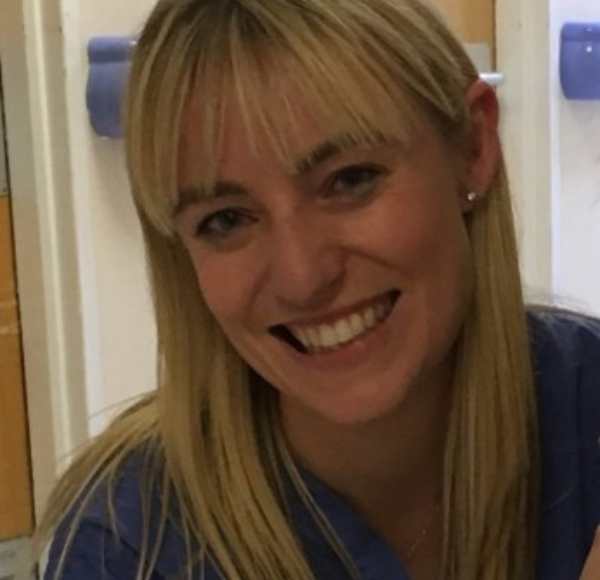
Emma Jackson
ST 7 Intensive Care Medicine Trainee
Rebecca Grinham, Clinical Specialist Critical Care Pharmacist
Everyone on the team is vital for the successful functioning of an intensive care unit and we all have important roles to play.
As a Clinical Specialist my role is about 70% clinical and patient facing.
In the unit where I work we have 20 critical care beds and I am one of two pharmacists per shift. The other 30% of my role is non-clinical, where I have responsibilities to develop regular reports documenting prescribing and expenditure patterns, develop and review guidelines and policies. I also do some teaching – within the department but also with the local university on the pharmacy undergraduate course.
Network connections are also important within critical care to keep in touch with other local ICUs: share best practice, develop shared guidelines and support others, particularly as many pharmacists are lone practitioners, especially those in smaller units.
I have also set up an ICU wellbeing team within my unit with the help of a small number of other members of the team. We support staff after difficult shifts, celebrate achievements and hard work and boost morale with fun activities, like an Easter egg hunt, and pancakes on pancake day.
My working day starts with...
a strong coffee and a walk in the fresh air, to clear my head and allow me to focus on the day ahead. Before heading into work I have to get two small children up and ready for school, and I have a 30 minute commute where I usually listen to a podcast on the drive. Once at work I review the unit board to see what has changed overnight, change into scrubs and attend the handover from the night team. This handover allows me to review a patient’s bloods and prioritise my jobs for the day. After handover the multi-professional team go and review all patients at the bedsides.
A typical workday starts at 8am.
We have handover from the night team at 8.30am, and then ward round and a large team walk round occupies all of the morning. All patients are reviewed, their medicines reconciled, therapeutic drug monitoring completed, and doses altered due to renal / hepatic impairment. After a brief lunch, usually at my desk catching up on emails I will complete any clinical jobs then attack my never ending 'to do list' of non-clinical tasks – reports, policies, attending meetings, PAG responsibilities.
My favourite part of my job is the team.
The banter, the support, and the family feel are so important. I really enjoy the multi-professional team, the opportunities to learn and bounce ideas. I love teaching and developing others, and the feeling of actually making a difference in a patient’s hospital journey.
During my day I work with a large multi-professional team.
This includes consultant intensivists, registrars, trainees, advanced practitioners in critical care (APCC), physiotherapists, dietitians, speech and language therapists, nurses, ward clerks, pharmacists, pharmacy technicians, housekeepers - ALL of these people are vital for the successful functioning of an intensive care unit and all have important roles to play ensuring the cogs continue to turn. I work most closely with the consultants, APCCs, registrars and nurses – we discuss patient care and management options, share ideas and develop treatment plans.
One thing I wish I’d known when I chose pharmacy is...
a pharmacist is much more than just someone who orders tablets! When I first qualified, I had no idea how varied, dynamic, complex and constantly evolving pharmacy is. The rate at which pharmacists have developed in the 17 years I have been qualified is astounding. Pharmacists have a lot to offer and are important members of the team. This is the main reason I joined the Intensive Care Society’s Pharmacy Professional Advisory Group, I want to give pharmacy and pharmacists a louder voice and highlight all their potential.
My working day finishes with...
one last clinical ward round review of all patients and any discharge preparation for patients before heading home. On the drive home I try and decompress from the day, especially if it’s been challenging mentally and emotionally. I need to reset so I can be in mum and wife mode as soon as I get home. I leave work at work the best I can, and I enjoy the gym with loud music in my headphones so I can switch my mind off.
One piece of advice I’d give anyone thinking about working in ICU is to do the basics well and then progress.
That applies to any ICU profession, not just pharmacy. Do not underestimate the importance of looking after your own wellbeing. The past few years have really highlighted the importance of mental health, the ICU environment can be stressful, emotional, and challenging but it can also be wonderfully supportive, rewarding, hilarious and fun. Look after the team you work with and they will look after you. And if in doubt bring cake!
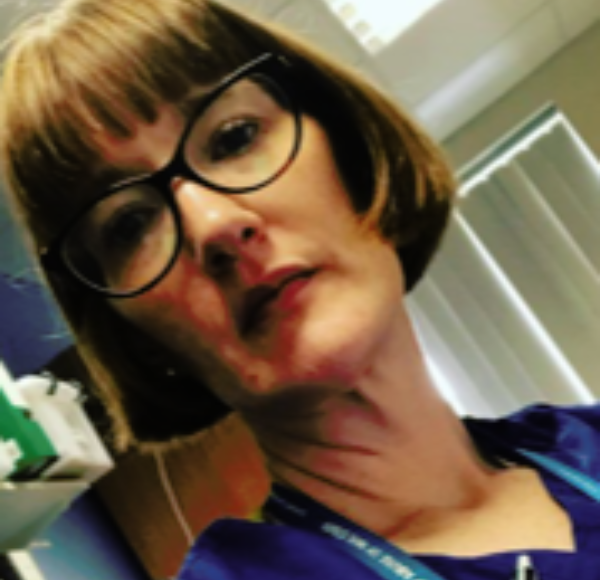
Rebecca Grinham
Clinical Specialist Critical Care Pharmacist
Allaina Eden, Physiotherapy Service Lead
Intensive care is a hardworking and emotionally challenging environment, but rewarding in so many ways.
At work I am…
a Band 8A clinical specialist physiotherapist in Critical Care, and Service Lead for the physiotherapy department at a tertiary specialist cardiothoracic hospital. In addition to my clinical role, I hold management responsibilities across the physiotherapy department.
My working day starts with a cycle to work, whatever the weather.
When I get to work "Good mornings" are exchanged throughout the teams. We have a shared office space with Physiotherapy, Speech and Language Therapists (SLTs), Occupational Therapists (OTs), dietetics and the cardiac rehab team, so there are lots of people to say hi to. I then go to the 8am ICU handover, participate in physiotherapy handover and caseload co-ordination.
A typical day involves…
A balance between clinical care, non-clinical work and attending meetings! I try to be 50% clinical throughout the week, this varies depending on meeting commitments and staffing. Clinically I am based on ICU and treat the more complex patients, specifically patients requiring rehabilitation, usually with extracorporeal support. We start rehabilitation very early, and it's great to start the recovery process and also a good workout! My meetings tend to be clinical and non-clinical ICU meetings, Therapies wide leadership and representing Therapies at a Trust level. Most meetings are virtual, but we are starting to have more face-to-face meetings which is preferable.
My favourite part of my job is seeing patients progress.
Physical rehabilitation is obviously very important, but more and more we are improving our holistic care approach, incorporating personal preferences and interests in our treatments with long term patients. We try to make rehabilitation more fun by having music in the background, or support patients with communication to find out more about them to provide them tools and ideas to motivate them and set important and relevant goals.
During my day I work with...
my Physiotherapy colleagues - this includes all Bands, from Team Lead Band 7 to our Rehabilitation Assistant Practitioner who are Band 4. This provides a brilliant range of skills and experience within the team. I work closely with our SLT, OT and psychology colleagues, and of course with our nursing team. With have daily clinical catch ups with the medical team, and also hold a Therapies/Allied Health Professionals rehab huddle to provide peer support and improve quality of care.
One thing I wish I’d known when I started my career is that it’s more than MSK physiotherapy.
Most people think physiotherapy is just sports and massage. It's much more and there is a huge range of different career choices within Physiotherapy. I also didn't know how many bodily fluids I'd have contact with!
My working day finishes at about 5pm.
Before I leave I catch up on emails and update my to do list for the next day. I enjoy my cycle home, it gives me 20 minutes to unwind and digest the day before collecting my children and starting the evening routine.
One thing I’d tell anyone thinking about working in ICU is...
It’s a hardworking and emotionally challenging environment, but rewarding in so many ways. Multi-professional team working is the key to success, with collaboration and development of skills to push the boundaries of roles and patient care.

Allaina Eden
Physiotherapy Service Lead
Sadie Diamond-Fox, Advanced Practitioner in Critical Care (APCC)
If you have enthusiasm, perseverance and patience, and are passionate about developing your career then intensive care is definitely worth exploring.
My role is very varied and exciting!
As a clinician, academic and a strategic leader, no two days are ever the same, but each role informs the other.
My working day starts with...
a coffee, regardless of which 'hat' I am wearing that day. My clinical working day begins with arriving in our changing rooms to be greeted by a fabulous towel sculpture and a freshly made on call bed, provided by our wonderful domestic team, which always brings a smile to my face! I then head downstairs to receive handover regarding the current status of all the patients currently residing on our ICU.
A typical day involves...
team handover, ICU resident ward round, which means patient reviews and liaison with other specialist teams, followed by ICU Consultant ward round. This is where ICU residents present their reviews to the senior team. We then have a very civilised microbiology and pharmacy ward-round with coffee, where we discuss the overall activity on the unit for the day, including any procedures or transfers. We have planned post-surgical admissions to our unit daily which usually occurs in the afternoon. As a mixed medical and surgical unit at a tertiary centre, we often also receive unplanned or emergency admissions from within the hospital and from the large geographical area that our services cover. I often also attend various education and clinical governance meetings during my shift. The days I’m working in my academic and leadership roles look very different, but can be just as busy!
My favourite part of my job is interacting with patients and their families.
I feel truly privileged to care for some of the most vulnerable patients and their families at such a testing time in their lives. I feel both my non-clinical roles aid me in this process as I am well versed in communicating complex information to a variety of audiences. Having lived experience of being a relative of loved ones admitted to intensive care has greatly influenced my practice when it comes to communicating with those in such a vulnerable position.
During my day I work with...
multiple members of the multi-professional team, including (but not limited to); Consultants, fellow ICU residents (doctors and APCCs), nurses, speech and language therapists, dieticians, pharmacists, physiotherapists, radiographers, administrative staff and our domestic staff.
One thing I wish I’d known when I chose a career in ICU is...
how politically driven healthcare provision is and how much it would change me as a person, both professionally and on a personal level.
My working day finishes with…
handover to the day (or night) team and quite often a hug or a high five as a thank you to my teammates. Admittedly, this isn't everyone's 'cup of tea', but working in ICU can be both physically and emotionally draining and I feel it's important to bring a little lighthearted team spirit to the table.
One piece of advice I’d give anyone thinking about working in ICU is...
ICU can be a 'high octane' environment that’s tense, unpredictable, changeable and unprecedented. However, it can provide you with endless opportunities as a member of an extensive multi-professional team. If you have enthusiasm, perseverance and patience, and are passionate about developing your career by being challenged both clinically and academically, a career within intensive care is definitely worth exploring.
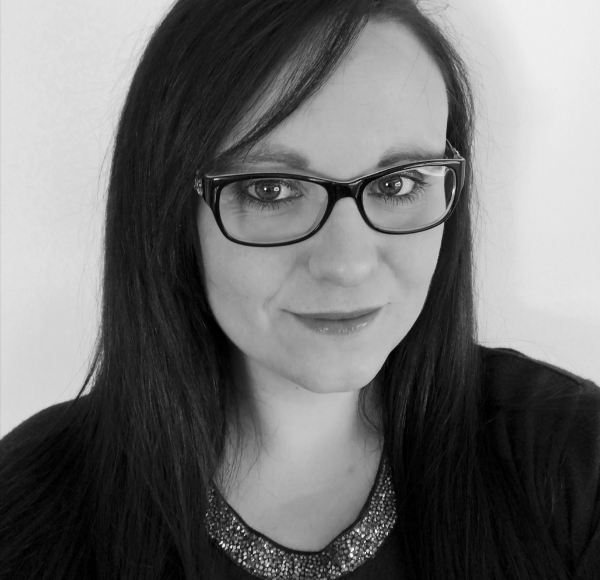
Sadie Diamond-Fox
Advanced Practitioner in Critical Care (APCC), Senior Lecturer in Advanced Critical Care Practice and Regional Advancing Practice Supervision & Assessment Lead
Fran Tait, ST7 Trainee
If you want a career in intensive care then it's for you.
As a senior doctor in training on intensive care…
I am involved in deciding on and helping to deliver the treatments, scans, investigations and interventions each intensive care patient needs each day to help them recover from the illness or operation that has meant they need intensive care.
My working day starts with a coffee in the car on the way to work.
I usually have a 30 minute drive in, and I leave before anyone else is up in the house, including the dog. At 8am the day starts with a handover from the doctors who have been on the night shift, giving details of any changes in each of the patients clinical condition. Then if I am the trainee in charge I organise the other doctors as to who will review each patient for the morning ward round. If I am leading the ward round, I sit and review all the scans and tests each patient has had to date and discuss them with the consultant on duty.
Morning handover
takes about half an hour, once finished the night doctors head home, we always check they feel safe to drive. The team then divides to review in detail each patient, looking at their observations, blood tests and scans and also examining them carefully, looking for any changes or trends that need intervention. At around 9:30 the duty consultant re-joins the team and each patient is then reviewed again in detail with any jobs that need doing for the patient being noted down. After the ward round at around 11:00, any immediate tasks are completed, then the team meet for coffee. Any further tasks are then completed and we have lunch. There is often teaching, either formal lectures or informal bedside teaching in the afternoon. During the day there may be referrals from the wards or emergency department or cardiac arrest calls to attend. Any new admissions during the day will be carefully examined and their notes reviewed in fine detail to ensure their diagnosis and treatment is correct. An afternoon round by the consultant usually happens around 4:30 or 5pm and the doctors who are not working until 8pm usually leave after this.
My favourite part of my job is...
when patients who the team has supported through their illness come back to visit and are better. We don’t often get to see people who have recovered from their critical illness but it really lifts the team when we get to see how we can impact people lives and get them better.
During my day I work with...
a huge team of skilled professionals; nurses, heath care assistants, physiotherapists, pharmacists, occupational therapists, dieticians, junior and senior doctors in intensive care and other specialties to name just a few.
One thing I wish I’d known when I chose intensive care medicine is...
how much I would enjoy the day to day work, but how hard the demands of the medical training programme can be.
My working day finishes with...
a final confirmation with the team that all the things we said we were going to do are done, then sometimes a mad dash to nursery to pick up my son, or a more leisurely drive through the countryside home.
One piece of advice I’d give anyone thinking about working in ICU is...
there is room for everyone in the intensive care team, if you want to follow this career path then it is for you. It is a hard but rewarding job, you see humanity in its entirety, have the privilege of supporting people through their most vulnerable times and make a huge impact on your patients and their families.

Fran Tait
ST7 Intensive Care Medicine Trainee and Anaesthetics Specialty Doctor
Carmel Richardson, Speech and Language Therapist
As a SLT working in critical care you will make such a difference to that patient's experience and life. There is no better SLT job.
My role is to…
provide early assessment, diagnosis and support for patients with communication and swallowing difficulties, support tracheostomy weaning and perform Fibre optic Endoscopic Examination of Swallowing (FEES). I work within a fabulous multi-professional team and have a key role in clinical governance activities to ensure we deliver safe, effective and innovative interventions to support our patients and their individual needs.
My working day starts with handover, where the night staff doctors hand over the patient updates to the day team.
This enables us to gather important information about the patients already on our caseload but also to identify any patients who may have speech and language therapy needs who have not yet been referred. The therapy team then have a short meeting to identify patient plans for the day and any joint working or sessions that would be beneficial to do together. Patients who have been discharged to the ward are then handed over to the respective Speech and Language Therapists (SLTs) who cover those wards or clinical areas. I then prioritise our patients on the case load and plan the day around any non-clinical activities.
A key part of my role is liaising with the nursing staff and medical and therapy teams to ensure I have a holistic view of the patient's clinical and psychological presentation.
It is important to understand the patient's swallowing, communication or tracheostomy weaning status in the context of the patient's condition and psychological wellbeing. I perform bedside clinical assessments of swallowing to advise on secretion management strategies and whether the patient can commence on oral intake. I am also assessing how that patient is communicating with the team involved in their care and their families. Patients may have a tracheostomy, have been intubated or on NIV.
SLTs need to be involved early on in the patient's care to support improved communication, establish safe oral intake where possible whilst minimising the risk of aspiration and jointly assess for early cuff deflation and PMV trials for patients with a tracheostomy. FEES is used to further assess the upper airway and swallowing which facilitates the tracheostomy weaning process and enables earlier swallow rehabilitation and return to oral intake. As well as direct patient care, I plan swallowing and communication rehabilitation programmes for our SLT assistant to carry out with patients, attend the weekly team long stay goal setting meetings and family meetings. I also need to factor in time for line managing other members of the team, audit, and service development projects.
My favourite part of my job is the therapy team I work with who are all so passionate and motivated to provide early patient focussed rehabilitation.
This results in visible patient progress early in their recovery. I also love the training element of my job, highlighting the role SLT has on intensive care teams to improve patient's wellbeing by supporting them to communicate and return to eating and drinking. I also work with a brilliant SLT and SLT assistant who are both as passionate about critical care rehabilitation and the role of the SLT.
During my day I work with...
doctors, nurses, physiotherapists, occupational therapists, dietitians, therapy assistants, Advanced Practitioners in Critical Care, administrative staff, Health Care Assistants, other SLTs, research nurses, and unit managers. It’s a professionally diverse team.
One thing I wish I’d known when I chose my career path is that an SLT has a unique role within intensive care that is constantly evolving, and you learn something new every day.
As an SLT working in intensive care I believe when you’re newly qualified it’s really useful to experience working with a variety of medical conditions, in different health care settings and with different MDTs to provide a solid foundation of transferable skills to then develop further SLT specific critical care competencies.
My working day finishes with...
ensuring all the admin processes are complete for the day including documentation, reports, data collection, handovers and liaison with families. We also make a provisional plan for the next day in relation to what staffing we have and priority patients.
One piece of advice I’d give anyone thinking about working in ICU is to go and experience it where you can and you won't want to work anywhere else!
It can be daunting at first due to the complexity of the patients, large teams, and equipment used but you will genuinely learn something new every day from the patients and the team you work with. The multi-professional team values our input and expertise and as a SLT working in critical care you will make such a difference to that patient's experience and life. There is no better SLT job.
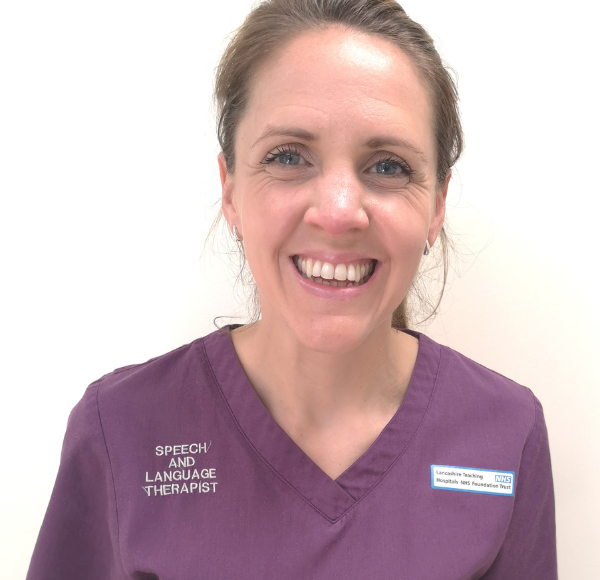
Carmel Richardson
Clinical Lead Speech and Language Therapist
Rebekah Haylett, Team Lead Physiotherapist
"It's the team that makes working in intensive care worthwhile."
My role is...
to provide expert clinical care to a wide range of patients, as well as leadership to the team to maintain and improve all aspects of evidence based practice and quality assurance. I also lead on the development of educational content for the team and the delivery of material to the multi-professional team.
My working day starts with getting organised!
I start by reviewing patient lists, allocating staffing, and attending handover. I also work out what other commitments I have, to make sure I'm in the right place at the right time, and make sure to identify where the team may need support with clinical workload.
A typical day includes a real mixture of activities.
I will have a clinical caseload and so the majority of my time is spent assessing and treating patients, and working really closely with the multi-professional team. I will also provide supervision and clinical support to other team members as well as other teaching commitments. I also have ongoing leadership responsibilities in continuing with work towards service evaluation and development projects, as well as for recruitment for the therapies department. On reviewing the jobs list at the end of the day hopefully all of these things have gone to plan and we have been able to deliver excellent patient care while managing to develop others and make progress with developing the service for the future.
My favourite part of my job is…
the opportunities to develop in multiple areas of my practice, but also for the team to develop to be able to provide the best possible service to our patients.
During my day I work with...
patients with a huge variety of reasons to require intensive care, and a team of very talented medical, nursing and dietetic staff.
One thing I wish I’d known when I chose my career path is...
just how many avenues there are to explore within physiotherapy.
My working day finishes with...
A quick reflection on what has been achieved and what is left to do.
One piece of advice I’d give anyone thinking about working in ICU is...
That it's the team that makes it all worthwhile. Work hard to foster relationships and a shared purpose.

Rebekah Haylett
Team Lead Physiotherapist
Our Intensive Care Week Podcast
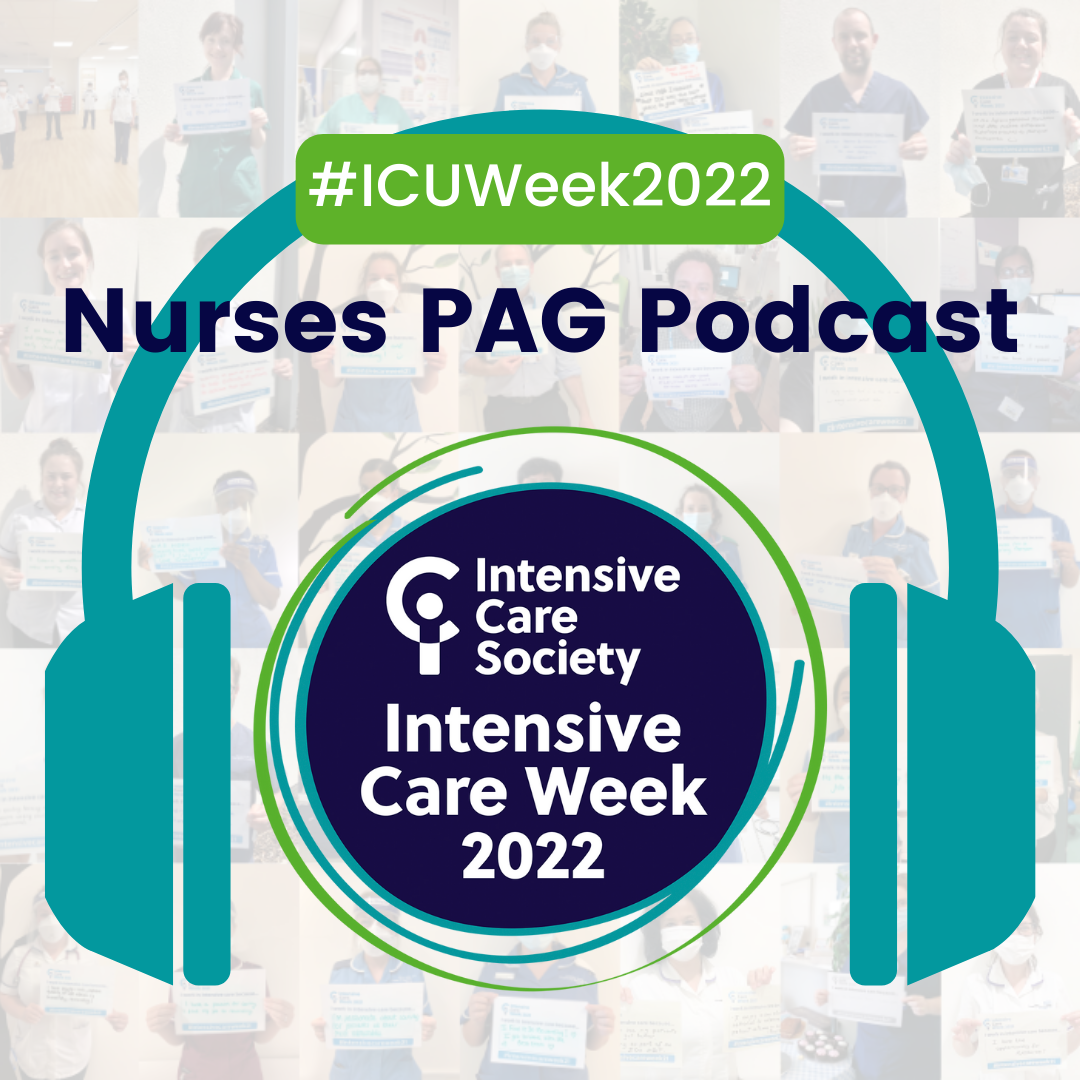
A career as an intensive care nurse can start in many ways and it can take you anywhere. From outreach, to research, to care by the bedside, if there’s one thing our Nurses Professional Advisory Group agree on it’s that it's all about the patients.
To celebrate Intensive Care Week 2022 four members of our Nurses Professional Advisory Group, Michaela Jones, Liz Staveacre, Pam Ramsay and Graham Brant, sat down to chat about how they came to be nurses in intensive care, and the contributions they feel they can make in their differing and varied careers.
It’s a great listen, full of insight into their profession, its future, and all the places it can take you. You can check it out at the button below, or wherever you get your podcasts by searching for ICS Radio in your podcast app.
Your Pictures
During Intensive Care Week 2022 we asked you to share the reasons you think others should work in ICU. We loved watching your reasons rolling through during the week, and want to thank everyone who download our selfie card, and shared their images by tagging @ics_updates and using the hashtag #ICUWeek2022.
We shared quite a few across our social media channels, but you find them all at the button below.
